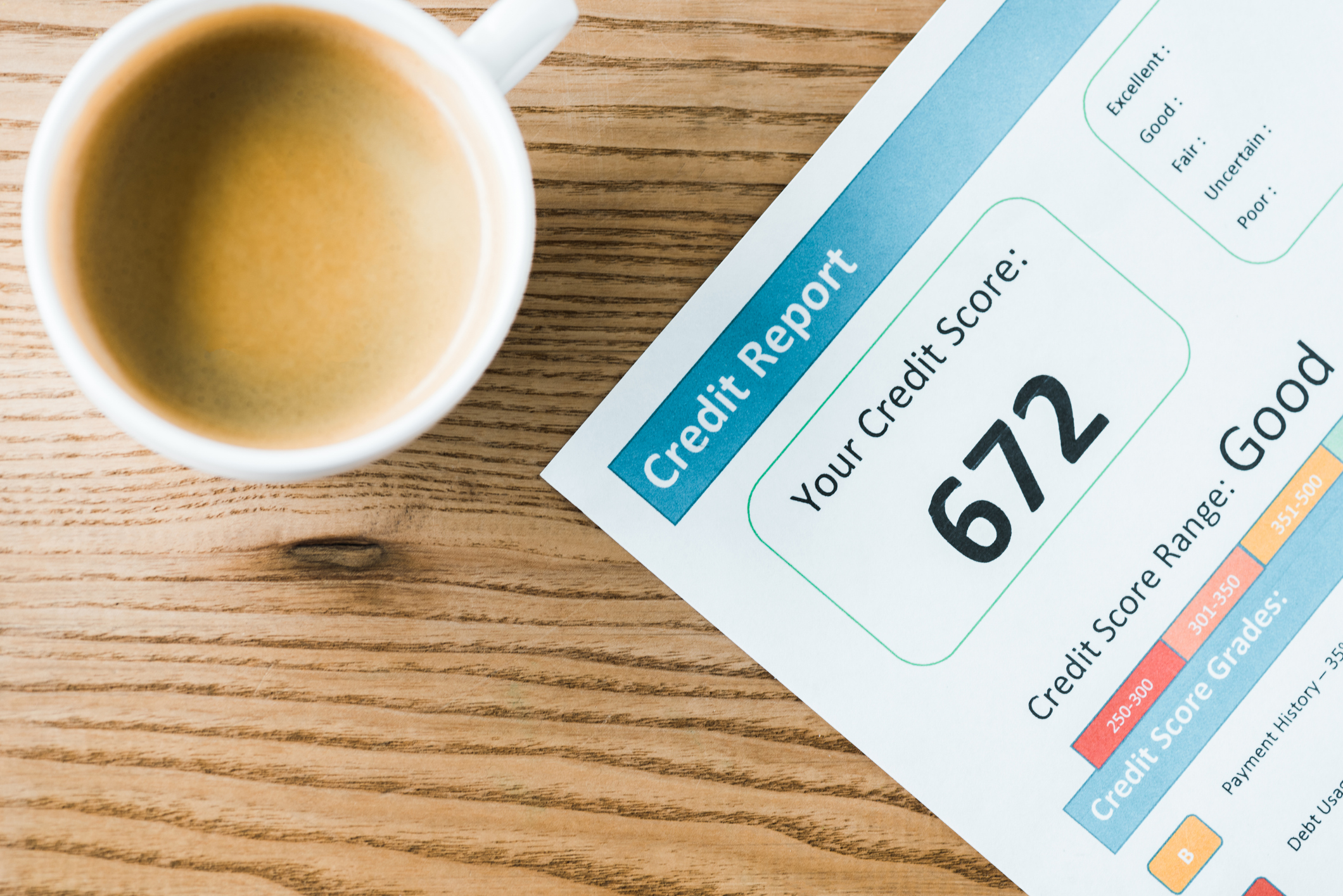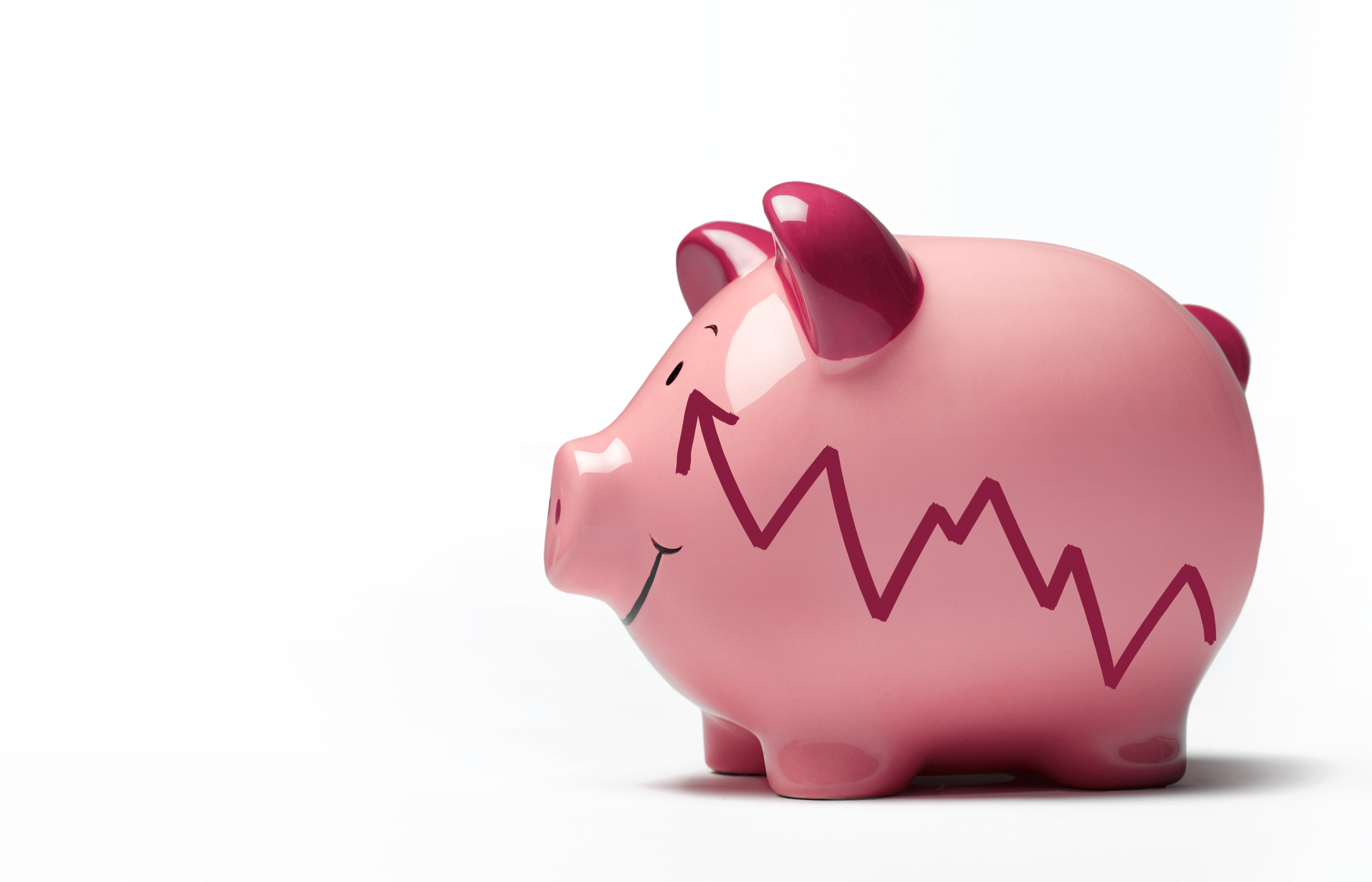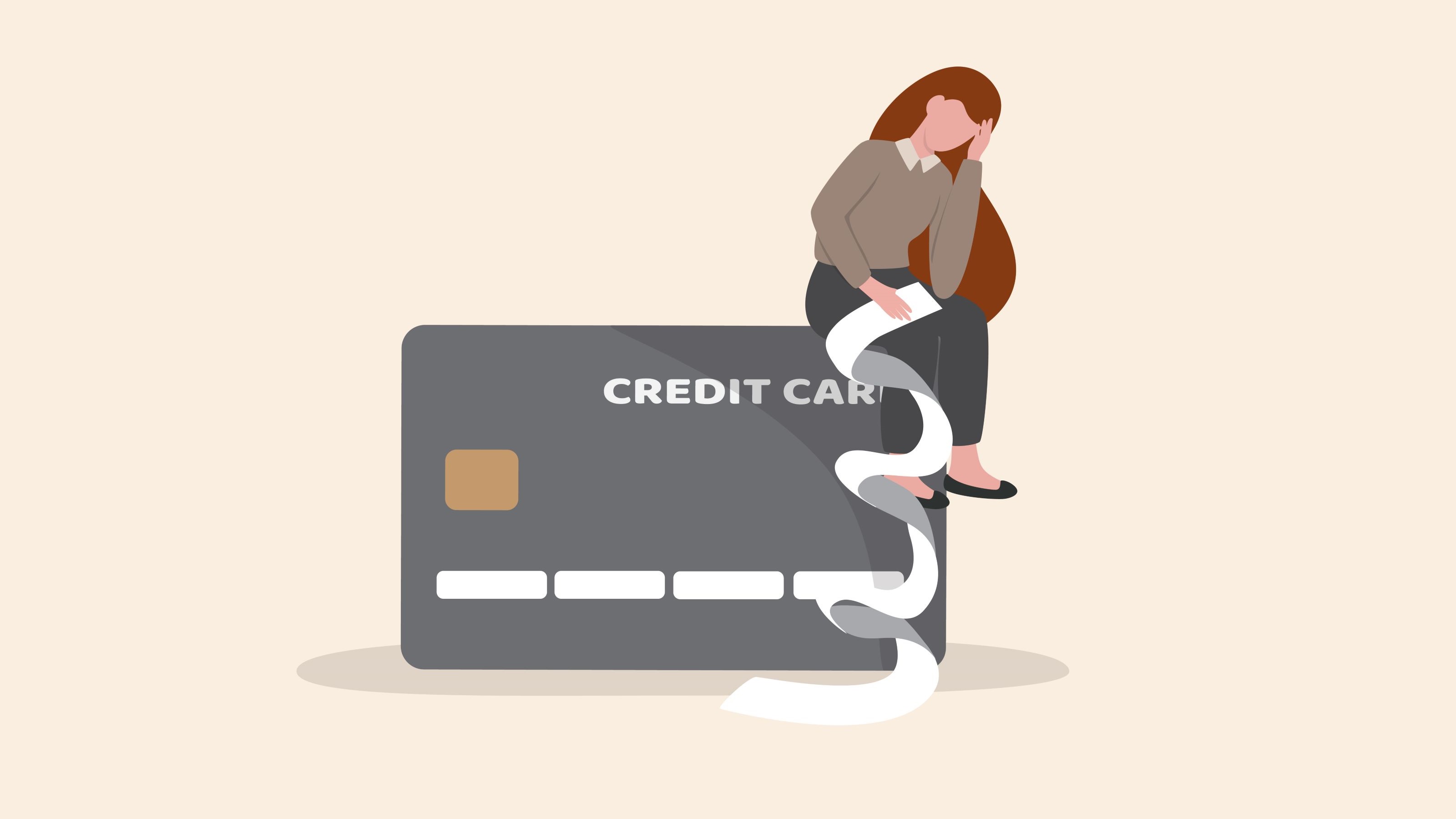9 Ways to 'Spring Clean' Your Finances
Don't forget to spring clean your finances this year. Not only will it make managing your money easier, it could save you some money.

Profit and prosper with the best of Kiplinger's advice on investing, taxes, retirement, personal finance and much more. Delivered daily. Enter your email in the box and click Sign Me Up.
You are now subscribed
Your newsletter sign-up was successful
Want to add more newsletters?

Delivered daily
Kiplinger Today
Profit and prosper with the best of Kiplinger's advice on investing, taxes, retirement, personal finance and much more delivered daily. Smart money moves start here.

Sent five days a week
Kiplinger A Step Ahead
Get practical help to make better financial decisions in your everyday life, from spending to savings on top deals.

Delivered daily
Kiplinger Closing Bell
Get today's biggest financial and investing headlines delivered to your inbox every day the U.S. stock market is open.

Sent twice a week
Kiplinger Adviser Intel
Financial pros across the country share best practices and fresh tactics to preserve and grow your wealth.

Delivered weekly
Kiplinger Tax Tips
Trim your federal and state tax bills with practical tax-planning and tax-cutting strategies.

Sent twice a week
Kiplinger Retirement Tips
Your twice-a-week guide to planning and enjoying a financially secure and richly rewarding retirement

Sent bimonthly.
Kiplinger Adviser Angle
Insights for advisers, wealth managers and other financial professionals.

Sent twice a week
Kiplinger Investing Weekly
Your twice-a-week roundup of promising stocks, funds, companies and industries you should consider, ones you should avoid, and why.

Sent weekly for six weeks
Kiplinger Invest for Retirement
Your step-by-step six-part series on how to invest for retirement, from devising a successful strategy to exactly which investments to choose.
March 20 is the first day of spring, and you know what that means: It's time to get started on your home’s annual spring cleaning. As you deep clean your home, however, there’s another thing that also needs tidying — your finances.
Organizing and cleaning up your accounts can help you save money throughout the rest of the year, so it’s important to set aside some time to “spring clean” your finances in the coming weeks.
Below are nine ways you can spring clean your finances, setting you up for financial success throughout the rest of the year.
From just $107.88 $24.99 for Kiplinger Personal Finance
Become a smarter, better informed investor. Subscribe from just $107.88 $24.99, plus get up to 4 Special Issues

Sign up for Kiplinger’s Free Newsletters
Profit and prosper with the best of expert advice on investing, taxes, retirement, personal finance and more - straight to your e-mail.
Profit and prosper with the best of expert advice - straight to your e-mail.
1. Check your credit report

A good starting point to organize your finances this spring is by checking your credit report. It’s important to check for any errors on your report that could be negatively affecting your credit score, such as incorrect personal information, balance errors, incorrect accounts resulting from identity theft or incorrect balances. And errors on your credit report are more common than you may think.
Consumer Reports and WorkMoney asked 4,300 volunteers to check their credit. Of those that checked it, 44% reported having incorrect information in one of their reports.
Fortunately, you can get a free credit report from each of the three major credit bureaus — Equifax, Experian and TransUnion — each week at AnnualCreditReport.com. Checking your report is also a good first step for those looking to improve their credit score.
Another option is to sign up with a credit monitoring service. Services like myFico allow you to access you credit whenever you want.
2. Get a better savings rate

If you haven’t been saving your hard-earned cash in a high-yield savings account, what are you waiting for? Now’s a great time to open one of the best high-yield savings accounts in order to maximize your savings throughout the rest of the year.
By not taking advantage of the high APYs on these accounts — in many cases, over 4% — you’re leaving free money on the table. Use our tool below, powered by Bankrate, to compare high-yield savings rates today.
Similarly, if you’ve looking to invest in CDs, now’s a good time to lock in rates. You'll earn a guaranteed return and if you lock in rates soon, you could beat any Fed rate cuts, which can lower saving rates.
3. Get rid of unwanted subscriptions

You likely don’t need, and are even unaware of, all the subscriptions you’re paying for each month, which can eat up a big chunk of your budget. A great way to save a little (or a lot) of extra money each month is to get rid of the subscriptions you don’t use and don’t need.
Unless you’re watching TV literally all day, you probably don’t need a subscription for more than one or two streaming services, like Netflix. And if you subscribed to a streaming service to watch a specific show, you've likely forgotten to cancel now that you’re caught up.
There's a whole number of other subscriptions that could be eating away at income each month, from meal-prep services to dating apps to music streaming.
Download an app that can track your monthly subscriptions and easily let you cancel them, like the budgeting app Quicken Simplifi. It's affordable, allows you to see all your expenses in one place and can project future cash flows to help with other bills.
You can sign up for it here:
4. Turn your old stuff into cash

When you spring clean your attic or basement this year, you may want to think twice about throwing everything away. Some of the old items you have collecting dust might actually be worth money — a lot of money.
Certain old-school video games, vintage toys and Boy Scout memorabilia, to give a few examples, can all go for thousands of dollars on eBay. Make sure you read Kiplinger’s advice on old things in your home that could be worth a fortune before you donate all those old boxes to your local Goodwill.
5. Deal with debt

It's time to spring clean your finances, which means it's time to declutter your debt. It can be tricky to keep up with multiple loans from multiple lenders, all with different payments and interest rates.
If this has caused you a great deal of financial stress, you could benefit from consolidating that debt into a single loan with a competitive interest rate. This can help you get a clearer picture of your overall finances, helping you pay down debt and save where you can.
Additionally, if you’re struggling to pay down credit card debt, consider a balance transfer card. These cards offer 0% introductory APR periods that can give you some breathing room to pay off credit card balances interest-free.
6. Put an estate plan in place

If you’ve been underestimating its importance or simply putting it off until later, now’s a good time to go ahead and put an estate plan in place. In 2024, only 32% of Americans have a will, reports the Caring.com 2024 Wills and Estate Planning Study.
This is a 6% decrease from 2023. They reported that 40% of Americans claim they don’t have a will because they don’t have enough assets to leave anyone.
However, having an estate plan can be beneficial for anyone, despite how wealthy you are. Without one, the state is in charge of distributing your property, which can leave your loved ones to deal with lengthy legal disputes.
If you already have an estate plan in place, make sure you review it, especially after any significant life changes. Also, make sure the beneficiaries on all your accounts are up to date, not just on your will.
Beneficiaries named on documents like life insurance policies and 401(k)s take precedence over those named in a will.
7. Clean up your budget

This spring, take some time to clean up your budget. Take a closer look at how much you’re earning and how much you’re spending. Identify areas where you can cut back on spending in order to allocate this money elsewhere, like funding a retirement account or paying down debt.
Also, review your financial goals for the year and make adjustments where necessary. If you need a fresh perspective on your finances, our article on the best budgeting apps can help.
8. Review your insurance policies

Save money this spring by reviewing your insurance policies and making sure you’re getting the best rate out there. Shop around and get quotes from several companies to compare prices, and if you haven’t already, consider bundling your home and auto insurance. According to Progressive, doing so can save you an average of 7% on your auto policy.
9. Maximize credit card rewards

Also, check what credit cards you have in your wallet. Are you getting the most benefits from your credit card perks?
Take a look at where you spend the most money, and see what cards let you maximize cash back in those spending categories. Plus, pay attention to any additional benefits offered by a card, as well as any sign-up bonuses that can help you save some extra cash throughout the rest of the year.
Check out Kiplinger's picks for the best travel cards and best rewards credit cards to compare some of the best cards on the market today. Or, use our tool below, powered by Bankrate, to compare personalized credit card offers today.
Related Content
Profit and prosper with the best of Kiplinger's advice on investing, taxes, retirement, personal finance and much more. Delivered daily. Enter your email in the box and click Sign Me Up.

Erin pairs personal experience with research and is passionate about sharing personal finance advice with others. Previously, she was a freelancer focusing on the credit card side of finance, but has branched out since then to cover other aspects of personal finance. Erin is well-versed in traditional media with reporting, interviewing and research, as well as using graphic design and video and audio storytelling to share with her readers.
-
 Quiz: Do You Know How to Avoid the "Medigap Trap?"
Quiz: Do You Know How to Avoid the "Medigap Trap?"Quiz Test your basic knowledge of the "Medigap Trap" in our quick quiz.
-
 5 Top Tax-Efficient Mutual Funds for Smarter Investing
5 Top Tax-Efficient Mutual Funds for Smarter InvestingMutual funds are many things, but "tax-friendly" usually isn't one of them. These are the exceptions.
-
 AI Sparks Existential Crisis for Software Stocks
AI Sparks Existential Crisis for Software StocksThe Kiplinger Letter Fears that SaaS subscription software could be rendered obsolete by artificial intelligence make investors jittery.
-
 One of the Most Powerful Wealth-Building Moves a Woman Can Make: A Midcareer Pivot
One of the Most Powerful Wealth-Building Moves a Woman Can Make: A Midcareer PivotIf it feels like you can't sustain what you're doing for the next 20 years, it's time for an honest look at what's draining you and what energizes you.
-
 I'm a Wealth Adviser Obsessed With Mahjong: Here Are 8 Ways It Can Teach Us How to Manage Our Money
I'm a Wealth Adviser Obsessed With Mahjong: Here Are 8 Ways It Can Teach Us How to Manage Our MoneyThis increasingly popular Chinese game can teach us not only how to help manage our money but also how important it is to connect with other people.
-
 Looking for a Financial Book That Won't Put Your Young Adult to Sleep? This One Makes 'Cents'
Looking for a Financial Book That Won't Put Your Young Adult to Sleep? This One Makes 'Cents'"Wealth Your Way" by Cosmo DeStefano offers a highly accessible guide for young adults and their parents on building wealth through simple, consistent habits.
-
 My Spouse and I Are Saving Money for a Down Payment on a House. Which Savings Account is the Best Way to Reach Our Goal?
My Spouse and I Are Saving Money for a Down Payment on a House. Which Savings Account is the Best Way to Reach Our Goal?Learn how timing matters when it comes to choosing the right account.
-
 We're 78 and Want to Use Our 2026 RMD to Treat Our Kids and Grandkids to a Vacation. How Should We Approach This?
We're 78 and Want to Use Our 2026 RMD to Treat Our Kids and Grandkids to a Vacation. How Should We Approach This?An extended family vacation can be a fun and bonding experience if planned well. Here are tips from travel experts.
-
 My First $1 Million: Retired From Real Estate, 75, San Francisco
My First $1 Million: Retired From Real Estate, 75, San FranciscoEver wonder how someone who's made a million dollars or more did it? Kiplinger's My First $1 Million series uncovers the answers.
-
 To Love, Honor and Make Financial Decisions as Equal Partners
To Love, Honor and Make Financial Decisions as Equal PartnersEnsuring both partners are engaged in financial decisions isn't just about fairness — it's a risk-management strategy that protects against costly crises.
-
 Top 5 Career Lessons From the 2026 Winter Olympics (So Far)
Top 5 Career Lessons From the 2026 Winter Olympics (So Far)Five lessons to learn from the 2026 Winter Olympics for your career and finances.